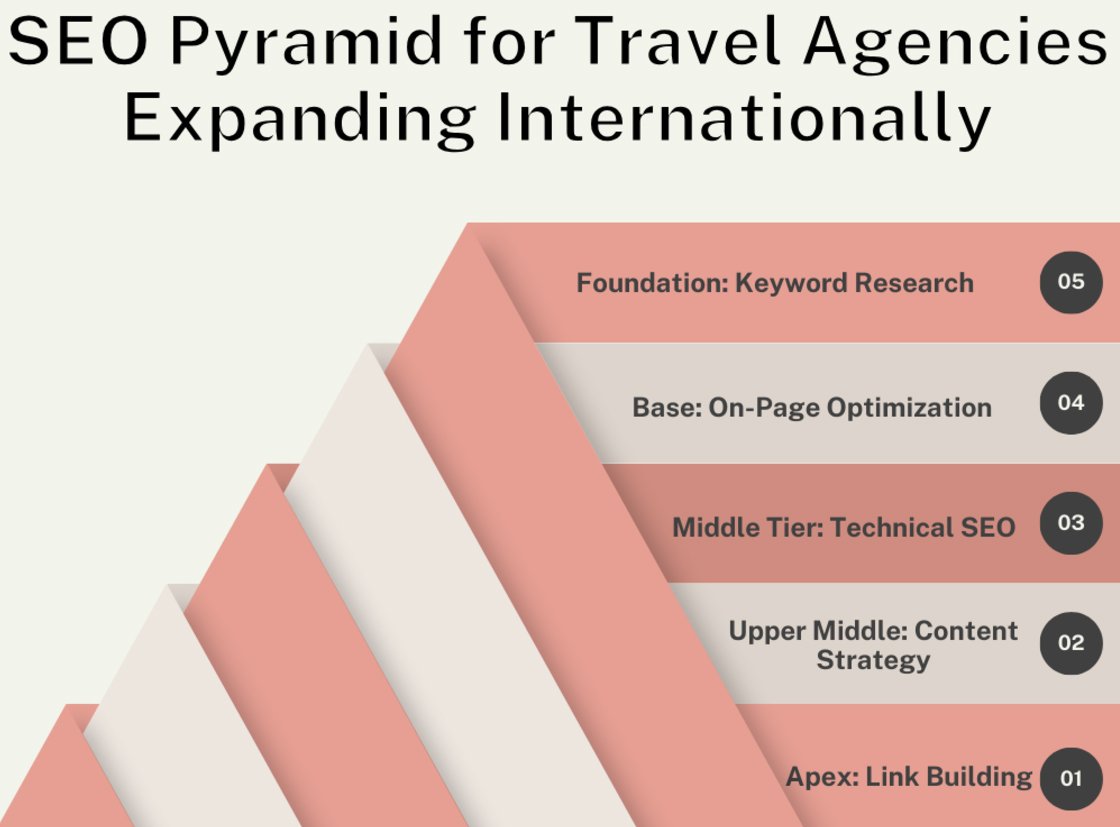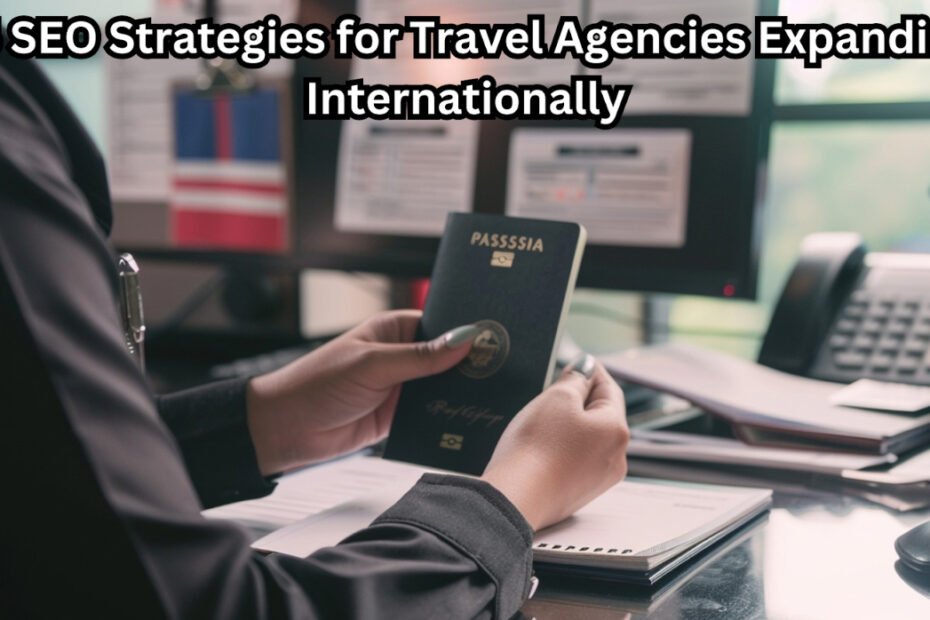15 SEO Strategies for Travel Agencies Expanding Internationally
This article outlines 15 key SEO strategies specifically designed for travel agencies venturing into international markets. From multilingual keyword research to technical optimizations, these tactics will help agencies improve their visibility, attract more qualified traffic, and ultimately increase bookings from diverse global audiences. By following these strategies, travel businesses can navigate the complexities of international SEO and establish a strong online presence in new markets.
International Keyword Research and Optimization
Extensive keyword research is the cornerstone of any SEO effort that works. This procedure becomes even more crucial for travel firms that are growing globally. Expanding internationally as a travel agency requires a tailored SEO approach to capture global audiences effectively. Utilize social media platforms to engage with international audiences and promote travel packages and destination guides.
Ensure your website is mobile-friendly and optimized for speed to enhance user experience and boost search engine rankings. Begin by researching and optimizing keywords for key markets such as the United States, the United Kingdom, Canada, Australia, and Germany to improve visibility in local search results. Implement geo-targeted content strategies, such as creating localized landing pages for each region and using hreflang tags to specify language and regional variations, to effectively cater to diverse audiences worldwide.
To target a page about eSIM plans aimed at tourists in the UK, you’ll need to optimize it for a global audience. The focus isn’t on people from the UK but on those from various countries planning to visit the UK and seeking mobile connectivity. Researching the best eSIM for UK travelers can help inform your keyword strategy. Consider targeting specific countries by incorporating high-volume keywords relevant to those countries in your content and obtaining features or backlinks from websites that rank well in those specific countries.
Content Localization
This emphasizes how crucial localizing content is for travel businesses. Translation is only one aspect of content localization. It entails tweaking visuals to appeal to the target audience, integrating references to regional events and holidays, and modifying colloquialisms and idiomatic terms to reflect local customs and cultural nuances. Travel agencies can improve their overall customer experience and establish greater bonds with their international consumers by adopting these techniques.
Technical SEO Adjustments
The foundation for the usability of your website is technical SEO. Improving the performance of your website is essential because mobile visitors will leave a page that takes longer than three seconds to load. The primary technical SEO changes are to make images load more quickly, use Content Delivery Networks (CDNs) to serve content from servers nearest to the user, allow browser caching to store static files locally on users’ devices, and make sure the website is mobile responsive for easy viewing on tablets and smartphones.
Local SEO and Google Business Optimization
Optimizing your Google Business Profile (previously Google My Business) is crucial for travel businesses that have physical locations. Using location-specific keywords in your business description, encouraging happy customers to leave positive reviews, claiming and verifying your listing, providing accurate and detailed business information, adding high-quality photos of your agency and destinations, and promptly responding to all reviews—positive and negative—are all steps toward optimizing your Google Business Profile.
Geo-Targeting with Google Search Console
One of the most beneficial aspects of Google Search Console for international SEO is the ability to target specific nations with your website. Logging into Google Search Console, selecting your property, going to “International Targeting” under “Settings,” and selecting the nation you wish to target are the steps involved in setting up geo-targeting. Recall that this arrangement works best when paired with other global SEO best practices. You may improve the relevance and visibility of your website for users in those nations by clearly stating which ones are your target countries.
Content Marketing Strategies
If travel companies want to improve their SEO approach, they need to provide compelling content. There is a plethora of intriguing material to peruse, ranging from thorough trip recommendations and well-chosen travel itineraries to fascinating customer stories and testimonials. Discover regional cuisine and suggest eateries that embody each location, all the while offering insightful cultural etiquette advice to enhance visitors’ experiences. Working with regional influencers and travel bloggers broadens your audience and increases your authority in new areas, which draws curiosity and trust from tourists who are looking for sincere and perceptive advice.
Backlink Building
In the highly competitive travel SEO market, having a strong backlink profile is essential for exposure and reputation. Make an effort to obtain high-quality backlinks from reputable travel blogs and websites that appeal to your intended market. Participate in guest posting on reputable travel blogs to show your expertise and obtain natural backlinks. Make engaging infographics that showcase travel trends or insights about the place, promoting cross-platform sharing and linking. Provide expert analysis and quotes for travel-related articles to build credibility and draw in backlinks from reliable sources.
Implement Schema Markup
Travel agencies must use schema markup since it aids search engines in understanding the context of their content and may result in rich snippets appearing in search results. Travel agencies can benefit from the following schema types: local business, travel agency, Trip, Hotel, and Restaurant. Search engines may now more prominently display important information in search results, such as business details, vacation plans, lodging possibilities, and restaurant recommendations, thanks to these markup types.

Optimize for Mobile-First Indexing
Keeping your website mobile-friendly is essential for both search engine visibility and user pleasure in the era of Google’s mobile-first indexing. The first step of developing a thorough mobile optimization checklist is to make sure your website utilizes responsive design principles, which enable it to adjust to different screen sizes and orientations with ease. This can be done by compressing images, reducing the number of HTTP requests, and using efficient caching techniques. For mobile users, navigation should be simplified with menu structures that make browsing easier.
Create Location-Specific Landing Pages
A customized landing page for each city or region can greatly enhance local SEO efforts for travel businesses that target several locales. Local contact details are important to have on these pages for accessibility and reliability; region-specific travel packages to suit local interests; thorough descriptions of local points of interest and attractions to increase relevance; and client endorsements from local customers to establish credibility.
Optimize Images for SEO
Image optimization is crucial for improving search engine visibility and user experience in the tourism business. Use descriptive and keyword-rich file names to increase relevance in search results; include alt text for accessibility and SEO in every image; compress images to save file size and speed up load times; and use responsive images that resize to fit different screen sizes—all essential image optimization tactics. Travel agencies may make sure their images enhance user engagement and SEO performance on digital platforms by following these rules.
Leverage Social Media for SEO
Travel agencies can gain indirectly from having a strong online presence on social networking sites like Facebook, Instagram, and Twitter, even if these signals have no direct impact on SEO rankings. Providing data via appropriate platforms increases exposure and draws in prospective customers. Interacting with followers promotes loyalty and community. Putting social media sharing buttons on websites helps spread content, increasing traffic and possibly boosting search engine optimization (SEO) through more social signals.
Create a Blog Strategy
Travel agencies can gain indirectly from having a strong online presence on social networking sites like Facebook, Instagram, and Twitter, even if these signals have no direct impact on SEO rankings. Providing data via suitable channels improves exposure and draws in new customers. Interacting with followers promotes loyalty and community. Using social media to distribute user-generated content promotes organic reach and increases credibility.
Monitor and Analyze Your Performance
Travel agencies must keep a close eye on SEO results to properly optimize their campaigns. The metrics that are most essential to monitor are search engine rankings for search engine placement, click-through rates for ad efficacy, bounce rates for content engagement, conversion rates for user action success, and organic search traffic for overall visibility. Make use of resources like Google Search Console to gain insights into keyword performance and Google Analytics to do thorough traffic analysis.
FAQs
How do I target international SEO?
To target international SEO, start by creating geo-targeted content and using hreflang tags to specify language and regional variations. Optimize for local search engines and directories, and consider hosting localized versions of your website. Backlinks from local sites and social media engagement in target regions also boost visibility.
What is the best SEO strategy in the world?
The best SEO strategy focuses on creating quality content aligned with user intent and optimized for relevant keywords. Implement technical SEO practices for site structure, speed, and mobile usability. Earn high-quality backlinks through outreach and collaborations. Regularly monitor performance with analytics tools to refine and improve strategies.
Conclusion
As the digital landscape continues to evolve, staying ahead in international SEO will require ongoing effort and adaptation. However, for travel agencies willing to invest in these strategies, the potential for growth and success in the global market is substantial. By embracing these SEO tactics, travel businesses can position themselves as leaders in their industry, ready to meet the needs of travelers worldwide.
